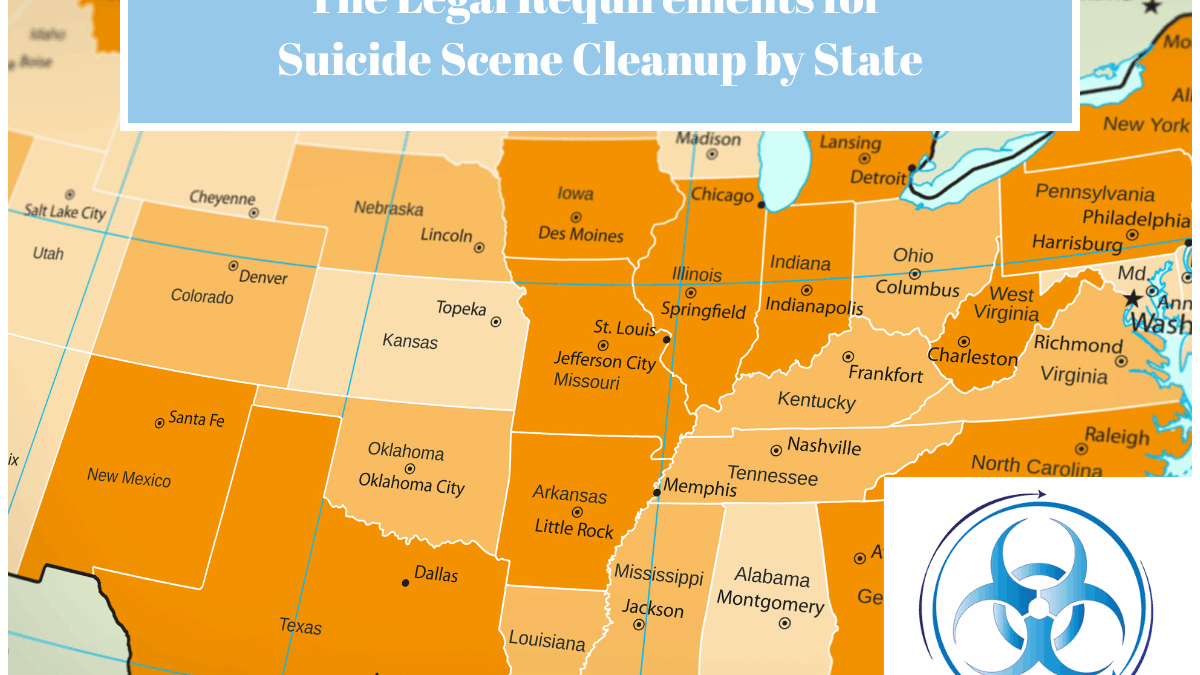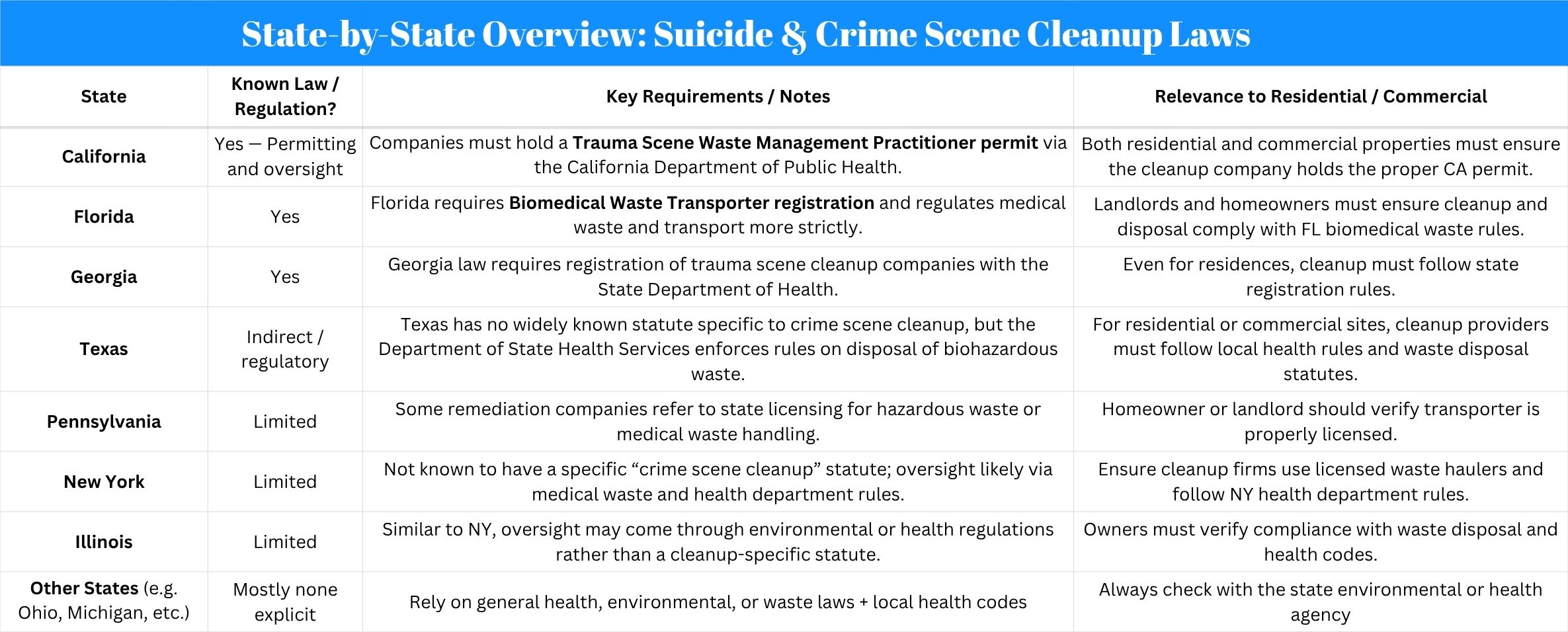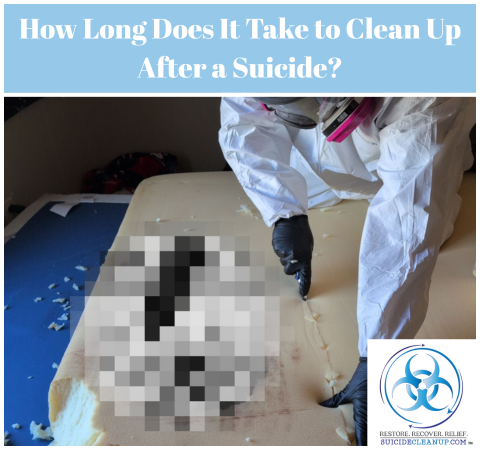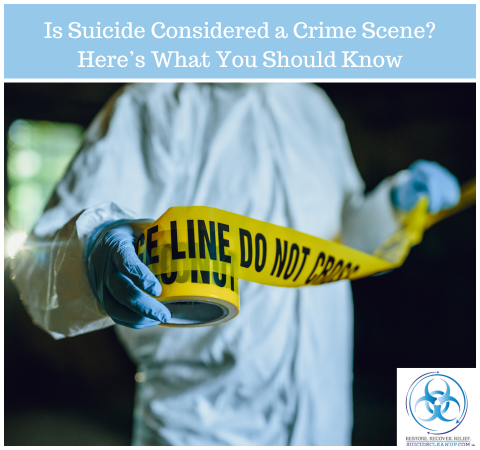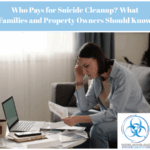
Who Pays for Suicide Cleanup? What Families and Property Owners Should Know
September 30, 2025
How Long Does It Take to Clean Up After a Suicide?
November 27, 2025Dealing with the aftermath of a suicide or violent death is one of the most difficult experiences a person or property owner can face. Beyond the emotional impact, there are serious legal and safety responsibilities involved in cleaning and restoring a scene safely.
If you’re a homeowner, landlord, or business owner anywhere in the U.S., understanding your state’s suicide cleanup laws and crime scene cleanup legal requirements is essential. Regulations vary widely — from strict permitting in states like California and Florida to general waste and health code oversight in others.
This guide provides an overview of what’s required federally and in key states, helping you understand how to remain compliant and keep your property safe.
Federal Regulations That Apply Nationwide
Even though most suicide cleanup laws are state-level, all trauma scene cleanup in the U.S. must follow federal safety and waste disposal regulations.
OSHA: Bloodborne Pathogens and Worker Safety
The Occupational Safety and Health Administration (OSHA) requires every trauma cleanup company to follow its Bloodborne Pathogens Standard (29 CFR 1910.1030).
This means:
- Workers must be trained to handle blood and bodily fluids safely.
- Employers must provide personal protective equipment (PPE).
- Hepatitis B vaccinations and exposure control plans are mandatory.
For more complex cleanup or emergency situations, OSHA’s HAZWOPER Standard (29 CFR 1910.120) may also apply.
👉 Learn more on OSHA.gov.
EPA: Biohazardous Waste & Disposal
After a suicide or crime, contaminated materials (like carpets, furniture, or clothing) are often treated as regulated medical waste.
The Environmental Protection Agency (EPA) and state environmental departments oversee the packaging, transport, and disposal of this material through licensed medical waste haulers. Improper disposal can result in major fines.
DOT: Transport Rules
The Department of Transportation (DOT) enforces strict labeling, containment, and manifest rules when biohazardous waste is transported from a cleanup site to an approved facility.
Industry Standards
Reputable cleanup companies follow the ANSI/IICRC S540 Standard for Trauma and Crime Scene Cleanup, which provides a national framework for safe remediation. At Suicide Cleanup, we follow these best practices to ensure complete decontamination and legal compliance.
State-Specific Suicide Cleanup & Crime Scene Laws
While federal regulations set the foundation, several states have their own specific legal requirements for suicide and trauma scene cleanup. Here’s how the key states compare.
California
California is one of the most regulated states for trauma cleanup.
Any company performing suicide cleanup must hold a Trauma Scene Waste Management Practitioner permit issued by the California Department of Public Health (CDPH).
This permit ensures:
- Proper handling and disposal of biohazardous waste.
- Worker safety compliance.
- Approved transport of medical waste to licensed facilities.
Homeowners, landlords, and businesses are required to hire a permitted practitioner — failure to do so can result in fines or liability if improper cleanup leads to exposure or property damage.
👉 Learn more from the California Department of Public Health.
👉 Local service: Suicide Cleanup in California.
Florida
Florida law tightly regulates trauma scene cleanup under its Biomedical Waste Program.
Cleanup companies must register with the Florida Department of Health as biomedical waste generators and transporters, and maintain documentation for every job.
Property owners should only hire cleanup professionals with an active Biomedical Waste Transporter permit. Improper waste disposal can result in environmental violations and liability for the property owner.
These laws apply equally to private homes, rental properties, and commercial buildings.
Learn more at the Florida Department of Health Biomedical Waste page.
Georgia
In Georgia, companies performing trauma or suicide cleanup are required to register with the Georgia Department of Natural Resources (DNR) or local health authorities, depending on county jurisdiction.
While not as stringent as California or Florida, Georgia enforces strict rules for biohazard transport and disposal, ensuring contaminated materials are handled only by authorized waste carriers.
For residential or rental properties, this means you must hire a registered and insured cleanup company to ensure compliance and protect yourself from liability.
Texas
Texas does not have a statute specifically labeled “crime scene cleanup,” but cleanup companies are governed by medical waste disposal regulations enforced by the Texas Department of State Health Services (DSHS).
Cleanup professionals must:
- Follow OSHA’s Bloodborne Pathogens standard.
- Use licensed medical waste haulers.
- Maintain waste manifests for documentation.
Landlords and property managers should ensure their chosen contractor is licensed and insured for biohazard remediation — this applies equally to homes, apartments, and commercial sites.
New York
New York State does not currently require a specific license for crime or suicide cleanup companies, but it does regulate regulated medical waste under the Department of Environmental Conservation (DEC).
This means any suicide cleanup on Long Island, NYC, or Upstate must involve:
- Proper segregation, packaging, and labeling of contaminated materials.
- Disposal via registered medical waste transporters.
- Documentation for insurance or legal verification.
While homeowners can technically clean small areas themselves, state and federal regulations make it safer — and more compliant — to hire certified professionals.
See NY DEC’s Regulated Medical Waste Guidelines.
Pennsylvania
Pennsylvania has no standalone crime scene cleanup licensing law, but companies must comply with the state’s Solid and Hazardous Waste Management Act and OSHA safety requirements.
Professional cleanup firms must maintain waste manifests and use licensed medical waste transporters.
This applies whether the site is a private residence, apartment building, or commercial facility.
Landlords may also be responsible for ensuring units are fully decontaminated before re-occupancy under state habitability laws.
Illinois
Like many states, Illinois lacks specific trauma cleanup legislation but regulates the transport and disposal of biohazardous waste under its Environmental Protection Act.
Cleanup companies must follow medical waste packaging and transportation rules and may be subject to local health department inspections.
For homeowners and businesses alike, the safest course is to use an experienced company familiar with Illinois EPA and OSHA requirements.
For Homeowners and Landlords
Regardless of where you live, you may face legal or financial exposure if a suicide scene is cleaned improperly. Here’s what every property owner should know:
- You’re responsible for ensuring safe cleanup. Even if the incident wasn’t your fault, liability can arise from future occupant exposure.
- Insurance coverage may pay for biohazard remediation if performed by a certified company — check your policy and request documentation.
- Disclosure laws vary: some states require sellers or landlords to disclose deaths or trauma events on the property.
- Never attempt a cleanup yourself. Doing so can violate OSHA, EPA, or local waste rules — and risk exposure to bloodborne pathogens.
To protect yourself, always hire an experienced and certified provider like Suicide Cleanup, which is fully insured, trained, and compliant with all state and federal regulations.
For Commercial Property Owners
Commercial and multi-tenant property owners face even stricter compliance obligations:
- Ensure your cleanup provider carries pollution liability insurance.
- Maintain full documentation for regulatory or insurance audits.
- If a workplace fatality occurs, OSHA notification requirements may apply.
- Verify the cleanup company uses licensed medical waste transporters.
Partnering with a professional firm ensures fast reopening of your property while meeting all safety and legal standards.
How to Verify Compliance in Your State
Here’s a quick process any property owner can follow:
- Search your state’s Department of Health or Environmental Protection website for “trauma scene” or “biohazard cleanup” regulations.
- Ask your cleanup company for:
- Proof of insurance and OSHA training
- State registration or permit (if applicable)
- Waste manifest or disposal records
- Contact your local health department for county-specific requirements.
Final Thoughts
While only a handful of states — like California, Florida, and Georgia — have direct statutes governing suicide or trauma scene cleanup, all 50 states fall under strict federal OSHA, EPA, and DOT rules.
For homeowners, landlords, or business owners, the safest and most compliant option is to hire a certified cleanup company familiar with your state’s regulations.
At Suicide Cleanup, our technicians follow federal and state guidelines, ensuring each job is handled with care, discretion, and full legal compliance.
If you’re unsure about your state’s requirements or need immediate service, visit our Contact Page or call our 24/7 response line to speak with an expert today.

